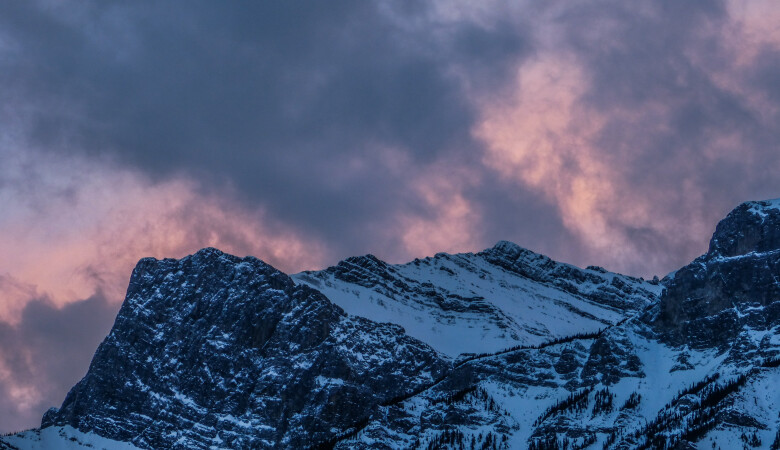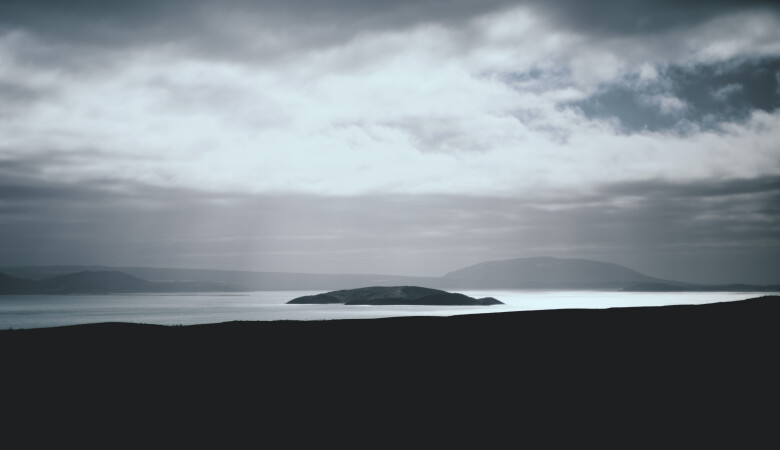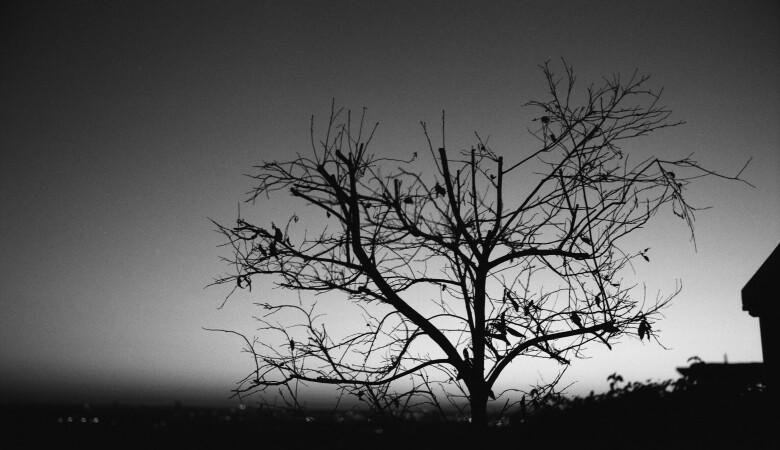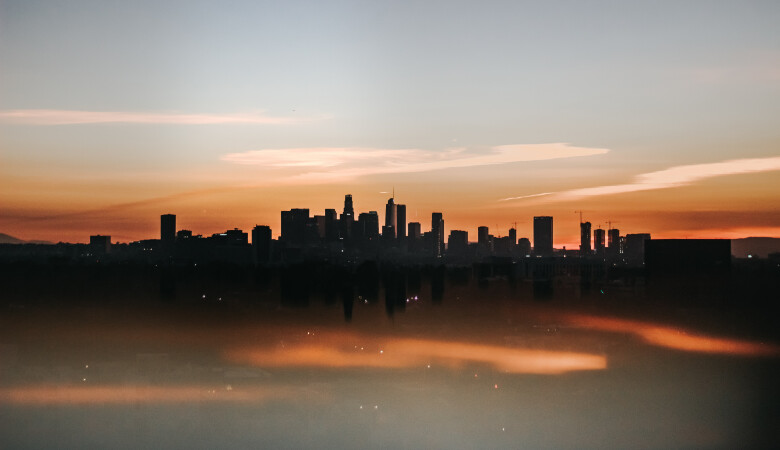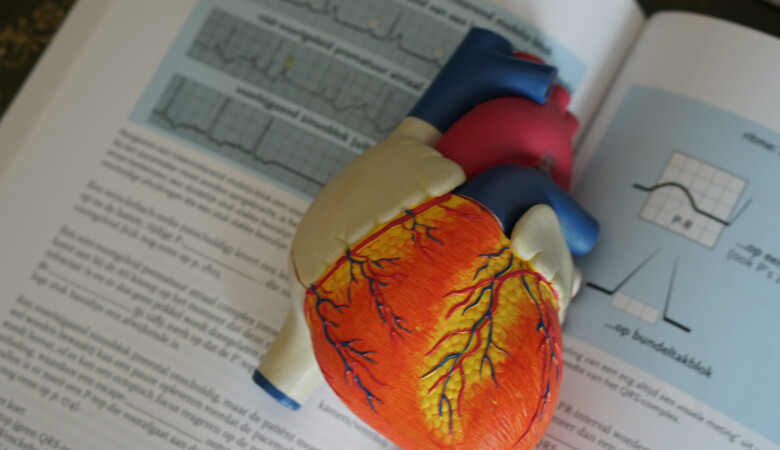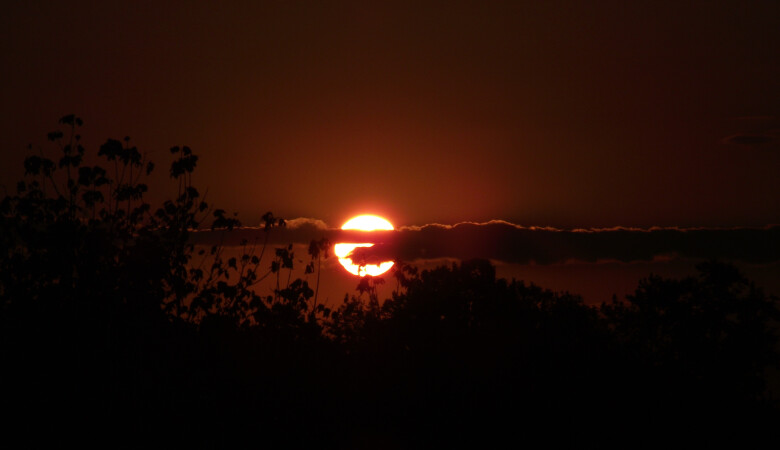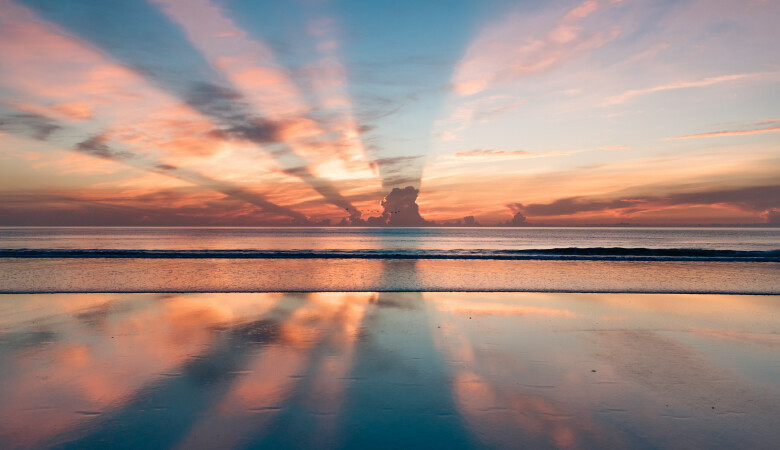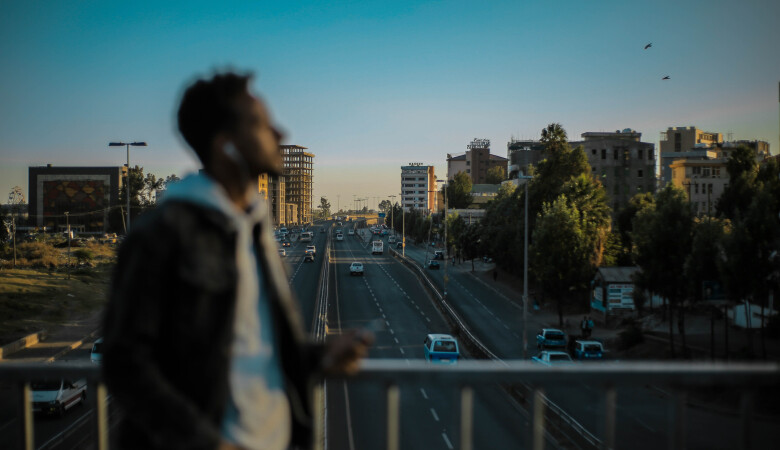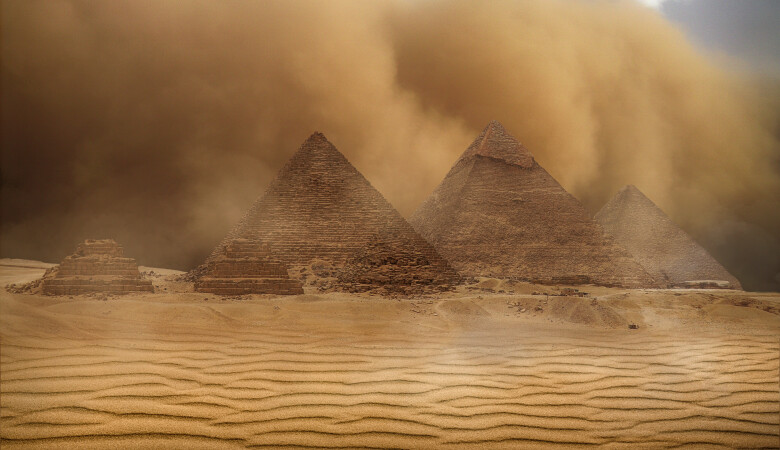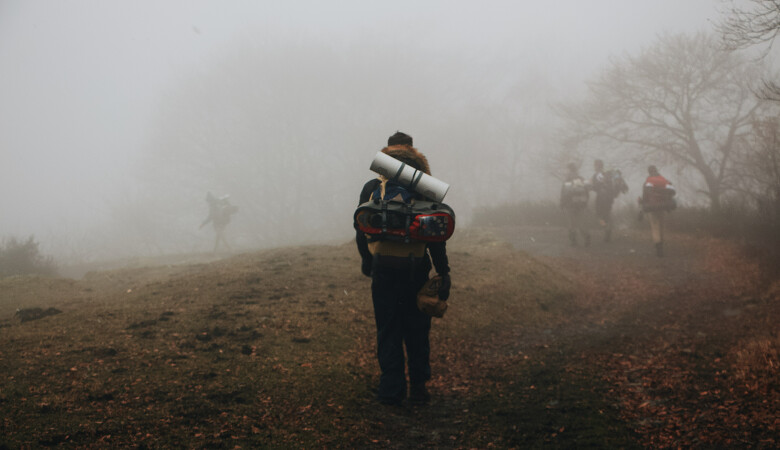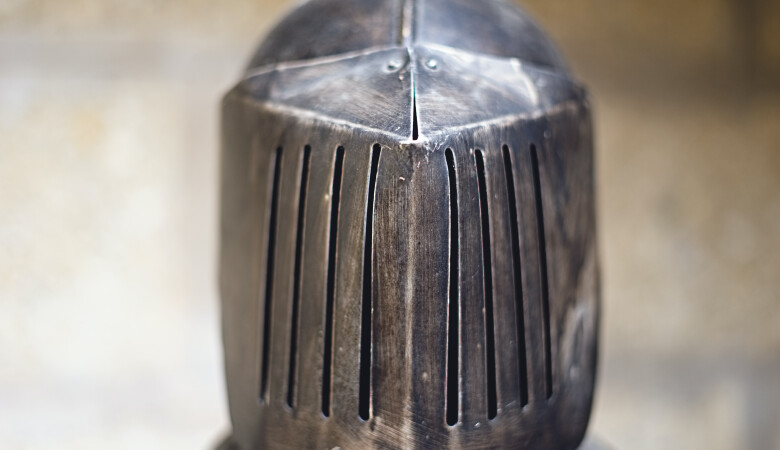Christ's Passionate Zeal for the Glory of His Bride (Isaiah Sermon 74 of 80)
December 18, 2016 | Andy Davis
Isaiah 62:1-12
Zion
Andy Davis preaches a verse-by-verse expository sermon on Isaiah 62:1-12. The main subject of the sermon is Christ's unification with His people in the heavenly Zion.
- SERMON TRANSCRIPT -
So I have a problem that happens every time I officiate a wedding, which I did yesterday. I struggle not to cry. This is a problem for me. And I don't remember it happening before a wedding about 15 years ago. I just asked Caroline, this was Eric and Lori’s wedding, and my daughter Caroline served as the flower girl, which was fine. But I didn't realize they were going to dress her up like a little bride.
And that was rough, because as she came down that aisle, right there and I was standing right down here, something came over me. And I started getting weak in the knees as I projected forward and I said, "Oh Lord, may it never be." I don't want to give her up to some dude. She looks so beautiful and so cute and I was melting and then I thought, "Wait, I've got a wedding I perform. This isn't good." And it happens... Doesn't happen every time but it happens a lot. I mean weddings are very special.
In a few moments, I think in the life of a man, are as powerful as the moment that he sees his bride for the first time on the day of their wedding. The way we do it here at this church is a dramatic pause and everyone rises and the doors at the back of the church open and there she is. And she's labored on her appearance like no other day in her life. And her hair is perfect. Cosmetics are perfect. The jewelry's perfect, sparkling. The dress is perfect. She'll never look better than she does at that moment. And the bridegroom in particular, I think, must drink in that beauty and the joy of that moment in a different way than anyone else there because he knows that at the end of that ceremony, the end of that day, she will be his wife and they're going to be joined together in a sacred covenant of marriage. A mysterious covenant that pre-figures, that acts out like a prophecy of future union between Christ and the bride.
Every Christian wedding that I've ever observed has followed this kind of pattern. Ephesians 5:32 says that marriage is a profound mystery, patterned after the eternal and perfect union between Christ and his bride, the church. Now, the consummation of that union awaits all of us. It's in the future. So just like I did for Caroline, I projected forward. But this beyond to the end of all history, to the point of it all, to the end of the story of redemption comes a wedding. And it's depicted for us powerfully in Revelation 21 verse one and two. The apostle John wrote these words, "Then I saw a new heaven and a new Earth, for the first heaven and the first Earth had passed away and the sea existed no longer. And I saw the holy city, the new Jerusalem coming down out of heaven from God, prepared as a bride, beautifully dressed for her husband."
The radiance of the church, the new Jerusalem, in John's vision was stunning. It was blinding. Her beauty was perfect. Ready for her bridegroom. Christ Jesus comes and takes her to himself in a marvelous act of unity between God and redeemed humanity. Every Christian wedding ceremony is a foretaste, a type, a shadow of prophecy of that future reality. However, there is a significant difference in our culture, not in every case, but often on that day the bridegroom doesn't even look at the bride before that moment and has contributed, I can assure you, nothing to her appearance that day, nor is he qualified or capable to do so, for the most part. He contributed nothing to her beauty. He just enjoys it and drink it in. But the radiant beauty of the bride of Christ, the church, the heavenly Zion, the new Jerusalem is completely the work of the bridegroom.
Jesus Christ found his bride corrupt, defiled, ugly through rebellion, defiant in her heart, spiritually dead. And He redeemed her by His own blood and He raised her from the dead spiritually. He washed her with water through the Word in order that he might present her to Himself as a radiant bride without stain or wrinkle or any other blemish but holy and blameless. Throughout every generation of church history, Jesus Christ has been preparing his elect in the same way. Little by little, preparing his bride for that glorious future wedding day. Every beam of her glory on that day will be his. Every sparkle of her radiance, every holy aspiration now consummated, every passionate desire for him, he will have worked all of that in her by the power of the Holy Spirit.
He has been preparing his bride to be glorious for his own enjoyment for 2000 years and he's not finished yet. And when she is completed, she will descend from heaven. She will come down from God perfect. She will be a work of heavenly power by Almighty God. All her glory will be His. And when the new heaven and a new Earth finally come, they're going to shine with the glory of God. But nothing in that new creation will be more glorious than the church, the bride. It will be the pinnacle of God's achievement. She will be as Proverbs 12:4 says, "the crown of her husband." Or as Ephesians says, "the fullness of him who fills everything in every way."
Now, what does that have to do with Isaiah 62? Well, I think Isaiah 62 is best interpreted as a first-person description from Jesus of his relentless, passionate zeal to perfect Zion for his own enjoyment. Utterly, relentlessly committed to getting Zion ready for that day. As we already noted, Zion is the new Jerusalem, the people of God, the church, the different ways of looking at it, but it has to do with God's people, Zion.
I. Christ’s Passionate Zeal for Zion’s Glory (vs. 1)
And we see right away in verse 1 Christ's passionate zeal for Zion's glory. Look at verse 1. "For Zion's sake, I will not keep silent. For Jerusalem's sake, I will not remain quiet till her righteousness shines out like the dawn, her salvation like a blazing torch." Isaiah's not an easy book to interpret. It's hard. I think for me, my perspective, it's vital for us to read Isaiah 62 verse 1 with its first-person voice. "For Zion's sake, I will not keep silent. For Jerusalem's sake, I will not remain quiet," etcetera. First-person voice, we have to read it properly. Someone is speaking passionately about his commitment to Zion's glory. That's what's going on. No matter how you interpret it, you see that.
Now, in the last chapter, if you were to go back one chapter, last week we looked at Isaiah 61:1 and 2. There it said, "The spirit of the sovereign Lord is upon me, because the Lord has anointed me to preach good news to the poor. He has sent me to bind up the brokenhearted and to proclaim freedom for the captives and release from darkness for the prisoners, and to proclaim the year of the Lord's favor." Well, in both Isaiah 61:1 and Isaiah 62:1, it's easy to see the first person as Isaiah the prophet himself, he's just talking about his commitment to preach and to teach, etcetera.
Jesus, at least, solves what Isaiah 61:1 was talking about when he rolled open that scroll, as we looked at last week, and began his ministry there in Nazareth by going exactly to Isaiah 61:1 and reading those words, "The spirit of the Lord is upon me because the Lord has anointed me to preach good news to the poor," by saying to the assembled people there, "Today in your hearing this scripture is fulfilled." In other words, "This is me speaking to you across the centuries through Isaiah." It's not Isaiah. This is Jesus speaking, Isaiah 61. Well, I think it's good to just go ahead and take that on into 62:1 as well. We should take the same approach. I believe this is Jesus speaking again.
And he's saying he will never stop preaching the good news, he will never stop speaking, he will not be quiet, he will not be silent until Zion is glorious, radiantly glorious. I think if you do that, the whole chapter just comes alive in powerful ways. "For Zion's sake," this is Jesus speaking, "I will not keep silent. For Jerusalem's sake, I will not remain quiet till her righteousness shines out like the dawn and her salvation like the blazing torch." It is Jesus who will not keep silent, it is Jesus who will not remain quiet. He's going to keep on speaking to Zion. He's going to keep on talking to Jerusalem until she's radiant like a blazing torch and shining with glory.
Now, just as Jesus 's mission in Isaiah 61 was essentially one of proclamation, the ministry of the Word, so also here, Jesus will not keep silent. He's not going to remain quiet. He's going to talk to his bride. He's going to speak to her. And he's not going to stop until she's perfect, because she's not perfect yet, she's not finished, she's not complete, there's more work to be done, she has to be yet more glorious than she is now. So what that means for us as we understand it more fully, is that there are elect chosen in Christ before the foundation of the world who have not yet been converted. They have not yet been reached with the gospel. They have yet to be brought in. And beyond that, those elect that have already confessed Christ but who have not yet been glorified still have to become more and more radiant and more and more glorious through sanctification, through growth and holiness.
So there's still work to be done on Zion. There's massive work still to be done on Zion until her glory is perfected as described in Revelation 21. But in this chapter, it's not just Jesus who's called on to not be silent. We're actually invited in in this chapter to get involved, to share his zeal, his relentless zeal for this whole project. We're supposed to care about this too. So later in the chapter, he says he's going to post watchmen on the walls of Jerusalem. And he's going to command them to give themselves no rest and to give him no rest, those that call on the Lord. So they're to be talking relentlessly until at last Zion is the praise of all the Earth. So the Christian reader of Isaiah 62, I think, is drawn quickly into the zeal of Jesus for his bride, the church. And we, as we read this, are challenged to be every bit as passionate and relentless and zealous as he is about the perfection of the church. Now, Christ's goal for Zion is radiant salvation. According to verse 1, Jesus is going to keep on speaking to his holy Word, to his bride, until she is perfect in his salvation. So Ephesians 5 just comes in, for me as a husband, I read this. All of you husbands can read this, and those of you that just know about Christian marriage, you know these words. Ephesians 5:25-27, "Christ loved the Church and gave himself up for her to make her holy, cleansing her by the washing with water through the Word. To present her to Himself as a radiant church without stain or wrinkle or any other blemish, but holy and blameless.
So the goal that Jesus has is plain: Radiant, glorious, blameless, final salvation, perfection. And His means to the end is the word, the ministry of the word. As the word does its work, she will be made ready. And that final radiance is magnificent. Revelation 21 and 22 are all about the radiance of the new Jerusalem and how beautiful it's going to be. How perfect. Revelation 21:9-11, one of the angel says to the Apostle John, "'Come, I will show you the bride. The wife of the lamb.' And he carried me away in the spirit to a mountain great and high and showed me the holy city, Jerusalem, coming down out of heaven from God, and it shone with the glory of God and it's brilliance was like that of a very precious jewel like a Jasper clear as crystal." And again later in that same chapter, Revelation 21:23, "The city, new Jerusalem does not need the sun or the moon to shine on it, for the glory of God gives it light and the lamb is it's lamp."
So the new Jerusalem is described as having streets of transparent gold, never been able to figure that out. Transparent gold, but everything in the city seems like the walls of the city have these jewels, these 12 different colored jewels. But everything's permeated, eradiated with the glory of God. It's just shining radiantly with the glory of God. And this must be the future glory of the people of God collectively. But each individual member of the body of Christ, we will have our own radiance and our own glow about us. If you can say it that way. Like Jesus said in Matthew 13:43, "Then the righteous will shine like the sun in the kingdom of their Father." How beautiful is that going to be? So in Isaiah 62:1, Jesus is saying His heart is burning with zeal. He will not remain quiet. He will not stay silent, He's going to keep on talking, He's just zealous about this, He's going to keep on preaching His holy word, until Zion is perfect, and fully righteous and holy, and pure in His sight, free from all darkness and free from all defilement. And friends that is going on right now. It's going on right here in this room.
By the grace of God. By the presence of the Word. By the presence of the Spirit. And it's going on all over the world, today, wherever the word of God is being preached and taught faithfully by gifted servants of God. The word of God flowing and the bride is getting ready. And wherever Evangelists and missionaries are sharing the gospel and speaking in the darkness the word of life and people are coming over from darkness into light, from death into life, this is happening. Jesus is doing it all in the Spirit. He's talking to His bride and making her beautiful.
And it's amazing for us as we contemplate the darkness out of which we came. And you really have to go on in Christian maturity and study to realize just how dark it was. You didn't realize how dark it was when you were in your lost condition and even maybe when you first converted, you didn't understand just how dark at all really was. But the scripture tell us. Colossians 1:13-14 says, "For He, [Christ] has rescued us from the dominion of darkness and brought us into the kingdom of the beloved Son. In whom we have redemption the forgiveness of sins." And then Ephesians 2 says, "As for you, you are dead in your transgressions and sins in which you used to live when you follow the ways of this world and of the ruler of the kingdom of the air, the spirit who has now work in those who are disobedient. All of us also lived among them at one time gratifying the cravings of our sinful nature and following its desires and thoughts, like the rest, we were by nature objects of wrath."
Later, in Ephesians 5, he says, "For you were once darkness, but now, you are light in the Lord. Live as children of the light. So as we are progressively made more and more radiant in holiness, then the next part of Isaiah 62 comes true. The nations are drawn to the brightness, the increasing brightness of Zion. As Zion becomes more and more radiant, more and more beautiful, the lost people are attracted to the light. They're drawn in.
II. Zion’s Glory on Display for the Nations (vs. 2-5)
Look at verses 2-3, "The nations will see your righteousness, and all kings, your glory, and you'll be called by a new name that the mouth of the Lord will bestow and you will be [speaking to Zion] a crown of splendor in the Lord's hand. You will be a royal diadem in the hand of your God." So God is going to put the increasing radiant beauty of His church on display to the people still living in darkness. And they're going to be attracted to that beautiful light. They're going to want to be part of it.
So you think about the stories of radical transformation, the conversion that's happened. Obviously, a New Testament example par excellence, is Saul of Tarsus. How he was living a life of self-righteous darkness serving Satan and trying to destroy the church. He was proud and ambitious and covetous and he was zealous and energetic for his own glory. But suddenly, the heavenly light of Christ's resurrection glory shone around him on that road to Damascus, and he fell to the ground. "'Saul, Saul, why do you persecute me?' 'Who are you, Lord?' Saul asked. 'I am Jesus, the one you are persecuting… Now, get up and go into the city and you'll be told what you must do.'" And immediately Saul went from destroying a church he hated. To building a church he loved. Everything changed. And his life became very mysterious and perplexing to some, very attractive to others.
He went right away and began preaching Christ in the synagogue in Damascus. He then was thrown out of the city, had to escape through a basket. He goes to the church in Jerusalem and they're stunned by this transformation in him. And it says in Galatians 1:23 and 24, "'The man who formally persecuted us, is now preaching the faith, he once tried to destroy.' And they praised God, because of me." And then this Paul began a life of relentlessly, zealously passionately building Zion. Building the new Jerusalem by the preaching of the gospel. And people were attracted to the changes they saw in him. And then they began to change too.
You think about Thessalonians, the people of Thessalonica. How it says in verse Thessalonians 1, "They turned to the living God from idols, to serve the living and true God and to wait for his son from Heaven, Jesus." And so the report of their change went throughout that entire geographical region, everyone heard about it. Same thing with the church of Rome, probably the most famous local church in the world. And they turned to God from idols and started serving God. And so the nations were attracted to the light. They were drawn in, as Jesus said in the sermon on the mount, "You are the light of the world. The city on a hill cannot be hidden. Neither people light a lamp and put it under a bowl, instead they put it up on a stand and it gives light to everyone in the house. In the same way, let your light shine before men, that they may see your good deeds and glorify your Father who's in heaven." So as we shine with this heavenly light, this transformed life. A life of holiness, a life of service, a life of conspicuous love for each other. A life of rejecting materialism, of living for the future, of living for the glory of God, a different kind of life, people are attracted to it. They want to know how do you have this kind of peace? How do you have this kind of joy in your life? I don't have it and they're drawn in.
"The nations will see your righteousness, and all kings your glory; you will be called by a new name that the mouth of the LORD will bestow. You will be a crown of splendor in the LORD's hand, a royal diadem in the hand of your God."
So here we see Zion's population is every increasing. As the church becomes more and more glorious, it gets bigger and bigger. It's a cumulative effect. I remember my last winter in Massachusetts, the snow... We had six different blizzards before we went and finally escaped, escaped Massachusetts. And all of that snow. And we had no where to put it, it was cumulative, it never went anywhere. November's snow was still there. It just kept accumulating, accumulating but it wasn't glorious to me. But this for thousands of years, the elect, the redeemed have been accumulating. And Zion is getting bigger and bigger and bigger and bigger, it never takes a single step back. It only gets bigger and more glorious. We can't see it with our eyes but it's happening. It's just going to get larger, look at verse 4, "No longer will they call you deserted or name your land desolate, but you will be called Hephzibah and your land Beulah. For the Lord will take the light in you and your land will be married."
Now obviously, the language here harkens back to the situation that was about to come on the Jews of being evicted from the Promised Land and going into exile to Babylon, which hadn't happened yet, it was still a century away in Isaiah's time. But he can see with the prophetic eye, the day when the remnant would return from Babylon, the exiles from Babylon, they would rebuild Jerusalem and repopulate the Promised Land. And that's what happened. The overwhelming majority of the Jews that were alive during the time of Nebuchadnezzar's invasion were killed by the sword, famine and plague. A small remnant went into exile. For 70 years they were there and then they started coming back in the days of the Persian kings. In the days of Ezra and Nehemiah and they rebuilt. Now Jeremiah was the prophet who prophesized the Babylonian exile. And when they were finally deported, when the last of them were gone, Jeremiah I've always pictured in my mind just sat there maybe on the Mount of Olives or some other place and looked out over Jerusalem, the smoldering rubble. Lamentations 1:1, "How desolate lies the city once so full of people." But God had predicted that the city would be rebuilt.
God had predicted that the land would be repopulated. And some see Isaiah 62 as that kind of thing, "No longer will your land be called deserted or your streets empty." But honestly, just like you heard Ben Weigel read, it's too small a thing for you to do that. It's too small a thing for these words to only talk about that straggling remnant of a few thousand Jews that came back and rebuilt Jerusalem. It was a hard work. The streets were filled with rubble. It was so depressing that Nehemiah's brother wrote to him talking about the desolated state of the city. When Nehemiah went, he couldn't ride around the city on his donkey because of the rubble everywhere. Then once they started building it back up, as I've mentioned before, the temple built under Hagga was so small and pathetic, that the old timers who remembered Solomon's temple, and all of it's glory, just wept. No, no Isaiah 62 is talking about something far more glorious than that, bigger than that. That was a type in a shadow but it's bigger than that. This is the building of something infinite and glorious, radiant.
So when it says, no longer will they call you deserted or name your land desolate, but you'll be called Hephzibah and your land Beulah, he's talking about, I think, the streaming of the nations to the heavenly Zion through the gospel of Jesus. Which had been talked about again and again in Isaiah's prophecy, all the way back in Isaiah chapter two, verse two and three. It says, "In the last days the mountain of the Lord's temple will be established as chief among the mountains. He'll be raised above the hills and all the nations will stream to it. Many peoples will come and say come, let us go up to the mountain with the Lord. To the temple of the house of Zion." That's the population. This is something bigger than just the rebuilding of Jerusalem. And the Lord will delight in Zion's glory. The word Hephzibah here, means literally, my delight is in her. Hebrew for my delight is in her. That's what God's going to name her, my delight is in her. The land Beulah means married. The text actually uses a marriage analogy for the land. God will take perfect delight in his people and in the land and marry Zion.
So this speaks of his saving intent, not just toward his people, but also toward the Earth itself. God has a love for the Earth. And there will be a new heavens and there will be a new Earth and there will be a new Jerusalem. And all of the groaning and the defilement and the bondage and the curse of Adam's sin will be banished from the Earth. And it's going to be better than it was, the Promised Land promised under Moses and Deuteronomy where he said, "You know, that land that you're entering, you're about to enter, it's a land flowing with milk and honey. It's not like you had in Egypt, where you had to irrigate the land with a foot pump, it won't be like that." But rather it's a land that the Lord, your God, cares for throughout the year. The eyes of the Lord are on it throughout the year and it drinks in the rain from heaven. And that was talking about the land of the Canaanites, Perizzites, Hittites and Amorites and Jebusites. This is talking about a perfect land that's coming even better than that. Far better than the land flowing with milk and honey. This is going to be a perfect world.
Zion’s Sons Delight in Zion’s Glory
Now, here we have to turn the corner because not only is God delighting in all this, but Zion's sons delight in it too. And we've got to get drawn into this. And this has to matter to you or you're just off message of what God's doing in the world. You have to actually care about this too. So look at verse five, it says, "As a young man marries a maiden, so will your sons marry you." Now the sons are doing the marrying here. "As a bridegroom rejoices over his bride, so will your God rejoice over you." Back to God, again. So the sons are marrying Zion, committed covenant of love for that work and God is in it too, and he delights in it as well. This is the consummation of every love that we've ever had in this world. Every love we have for father, mother, sister, brother, husband, wife. Every love there is and beyond that really the love that many have for their homeland. The love you have for your native land, the land of your birth.
Many nations feel this very strongly. They write classical music about it. They talk about the fatherland, the Germans talk about the fatherland. Russians talk about Mother Russia. Sailors that are gone, back in the days of sailing, when they come back to Old England they would just immediately kneel down and kiss the ground. Kiss the ground just to be back in your homeland. The love that you had for the land itself and what it's like to be in your own home country and to see that those familiar sites, and the comfort that it brings to you. That's going to be consummated in the New Heaven, the New Earth, and the Heavenly Zion. You'll love the land. Just love it and you'll be married to it, in a sense. And note how it says again about God, that he will delight over Zion. He'll take delight like Zephaniah 3:17 says, "The Lord your God is with you. He is mighty to save. He will take great delight in you. He will quiet you with his love and he will rejoice over you with singing."
Like God singing love songs to his bride. He's just going to sing over us. What would that sound like, God singing? It's amazing. And so our hearts will swell with joy and lavish piece as our eyes drink in the glory of all three, the New Heaven, the New Earth, the New Jerusalem, will drink in the beauty and the glory of it. And what will such a world look like? And what will it be like to explore such a world? How much will that bring us delight to find pockets of God's glory and we'll have all of eternity to explore it and see the radiance of God shining in that world. Now for us, we don't have to wait for the future to love it, we should love it right now. We should love the church now. You should be committed to the work of the Church of Jesus Christ, right now. And that's in these two journeys we keep talking about, internal journey of holiness. Love Zion by growing in holiness and helping brothers and sisters do the same. Disciple each other, pray for each other, hold each other accountable. Speak the word of God to each other so you grow in holiness. That is the radiance of Zion as it grows.
And then the external journey of evangelism and missions. Evangelism, right here in this triangle region. Share the gospel with lost people. Talk to them about their souls. Use the season, Christmas, as a springboard. But just talk to them. Love the work of Zion, love the church right now.
III. Relentless Watchmen Posted on Zion’s Walls (vs. 6-9)
In verses 6-9, we have these relentless watchmen posted on Zion's walls. These are beautiful verses. The Lord appoints here and charges watchmen. Look at verse six and seven, "I have posted watchmen on your walls O Jerusalem; they will never be silent day or night. You who call on the Lord give yourselves no rest and give Him no rest, until He establishes Jerusalem and makes her the praise of the Earth." So here, I believe the Lord is calling on the people of Zion to devote themselves fully as he is to the glory of Zion. The watchmen posted on the walls are a metaphor concerning the relentless protection of a vulnerable city.
So the city sleeps at night and is vulnerable. So watchmen, hopefully reliable men, are put up on the walls and they're not allowed to sleep. In days of warfare, it's the death penalty if you're on picket duty or on sentry duty and you fall asleep. The watchmen are on the walls, and they're not going to sleep at night. But here it's even more extreme. These watchmen are posted on Zion's walls and they're told to give themselves neither rest day or night. No rest ever. And they're not allowed to give God any rest either. Give yourselves no rest and give Him no rest until He finishes Zion. I can't help but think in church history about that Moravian Intercession 24 hours a day. They set up in the early part of the 18th century, first court of the 1700s. They began a passionate, committed, 24 hour a day prayer vigil, based on this and other texts. 24 hours a day, seven days a week, 365 days a year for over 100 years.
Relentless. It was called Herrnhut, the Lord's watch. And they would just watch and pray, specifically for missions, the spread of the gospel to the ends of the Earth. So we can't help but think about the persistent widow that Jesus told that parable that they should always pray and never give up. Never be silent, day or night. You call on the Lord, give yourself no rest, give yourselves no rest, and give him no rest till he establishes Jerusalem and makes her the praise of all the Earth. Now, I was going to wait to the end of the sermon, but I just want to apply it right now. What's going on with you in your prayer life? How does this convict you? It convicts me. I don't think God saying that we personally can never get a good night's sleep. That's not it, but the thing is there should be a relentlessness to our intercession, praying without ceasing, and there should be times of fasting and prayer and focused prayer for the establishment of the church of Jesus Christ to the ends of the Earth, Zion.
That we should give ourselves no rest. We should be passionately interceding for the spread of the gospel. What is your prayer life like? Is there a pattern of sacrificial prayer for missions in your life? Now, the Lord swears to make Zion prosperous. He goes beyond this command to the watchmen on the walls. He actually promises to make Zion prosperous beyond their meager efforts. Look at verse 8-9, "The Lord has sworn by his right hand and by his mighty arm never again will I give your grain as food for your enemies. Never again will foreigners drink the new wine for which you have toiled. But those who harvest it will eat and praise the Lord, and those who gather the grapes will drink it in the courts of my sanctuary."
Now, the prosperity of Zion is something that only God can work by the power of his right hand and his mighty arm. As a matter of fact, verse 8, he swears an oath by His own right hand and his right arm. He's swearing by his own omnipotent power. "By my right hand, and by my mighty arm, I swear that you will be prosperous for all eternity." In effect, he's saying only my omnipotence can make this happen. By the way, this is another interpretive key that this is not talking about the physical city of Jerusalem. When did this happen? When has this ever been true of the Jews in the Promised Land? That they would never again lose their harvest to invading enemies.
That city has been a war zone for 2000 years. But in the future, God will establish Zion, and by His omnipotent power he will make it the praise of all the Earth. And the days of danger will be over. There will be absolute peace and prosperity. Isaiah 60, verse 11 says of Zion, "Your gates will always stand open, they will never be shut day or night, so that men may bring you the wealth of the nations their kings led in triumphal procession." Or Revelation 21:23-26 says, "The city does not need the sun or the moon to shine on it, for the glory of God gives it light, and the Lamb is its lamp. And the nations will walk by its light, and the kings of the Earth will bring their splendor into it. On no day will its gates ever be shut for there'll be no night there." The glory and honor the nations we brought into it.
You know another reason that you don't need to be guarding the walls anymore and the gates can stand open day or night? No enemies left. Satan will have been thrown in the lake of fire. All of his children will be thrown in the lake of fire, all the rebels will be gone. They'll be no threats, it'll be a place of peace, permanent peace and prosperity. It says in Isaiah 30:30, "The Lord will cause men to hear the majestic voice of the Lord and will make them see His arm coming down with raging anger and consuming fire with cloud burst thunder storm and hail." The arm of the Lord coming down on the enemies and removing them out of love for His people and protection of the City of Zion.
IV. Zion’s People Redeemed to Build Zion (vs. 10-12)
So finally, verses 10-12. Zion's people are redeemed to build up the city. Look at verse 10. We have a high way of Zion's construction here. Spiritual civil engineers build up the highway. Look at verse 10. "Pass-through, pass-through the gates, prepare the way for the people build up, build up the highway, remove the stones, raise a banner for the nations." So this is an image here of journeying, and of traveling, and of a highway built in the desert. Every mount will be made, will be leveled and every valley raised up and the word of the Lord traveling, this has got to be missions again.
Why is that? Look, we as Christians, we don't need to take physical pilgrimages. That's an old covenant thing. The Jews three times a year would travel from wherever they live up to Jerusalem, the place that the Lord had chosen. Three times a year they would come up with those festivals. But you remember in John chapter 4, Jesus talking to the Samaritan woman and Jesus convicted her about her sexual sin. Remember that? So she changed the subject, brought up a controversial topic. She was a smart lady. It's like, "You Jews say that you should worship in Mount Zion, but we say it should be here a Mount Gerizim. Who's right?" Smokescreen, but Jesus cut through it all to the real purpose anyway. "Believe me, woman, a time is coming when you will worship the Father neither on this mountain nor in Jerusalem. You Samaritans worship what you do not know; we worship what we do know, for salvation is from the Jews." We're not looking for a physical Zion here. You Samaritans worship what you do not know. "We worship what we do know, for salvation is from the Jews. Yet a time is coming and has now come when the true worshipers will worship the Father in spirit and truth, for they are the kind of worshipers the Father seeks. God is spirit, and his worshipers must worship in spirit and in truth."
This "build up, build up the highway… raise a banner for the nations." That's the way by which they make this pilgrimage, this spiritual journeying, and they don't need to move their bodies at all. They might be paralyzed in a hospital, be unable to move a muscle, and they can journey to Christ. Jesus said in John 14, the night before He left his disciples, the night before he was crucified, he said, "'I am going there to prepare a place for you. And if I go and prepare a place for you, I will come back, and take you to be with me, so you also may be where I am. You know the way to the place where I'm going.' Thomas said to him, 'Lord, we don't know where you are going, so how can we know the way?' Jesus answered, 'I am the way…'" there's the highway. Paul said in 1 Corinthians 3, "No one can lay a foundation other than the one already laid, which is Jesus."
Alright, well, I'm going to say the same thing about the road. No one can pave a road except the road already paved, and that road is Jesus. He is the way. So wherever these missionaries go, these folks getting... I love that video, that's my favorite IMB video ever, because it shows so many different features of a missionary's life, but they're getting in a boat, they're going off to an island where some family members, some unsaved family members, of those that who are already Christians are there, p they want to reach them. So they're in their boat, traveling across. And they're going to lay a foundation whereby those people on that island can journey to Zion. They don't have to move, they don't have to come off the island, except to do missions and evangelism. And they're going to lay that road and that road, his name is Jesus, they're going to preach Jesus. And that banner for the nations will be lifted up.
The Promise of Zion’s Consummation
And Zion will be consummated. Look at verse 11-12: "The Lord has made proclamation to the ends of the Earth, say to the daughters, 'Zion, behold, your Savior comes. Behold. His reward is with him and his recompense accompanies him.' They will be called the holy people, the redeemed to the Lord. And you will be called sought-after, a city no longer deserted." So that's what's going to get proclaimed on these roads by the missionaries, "Behold, your King is coming." And when we finally see Him with our eyes, we're going to see him, that's the second coming of Christ. And at the second coming of Christ, all of these things will be consummated.
The daughter of Zion is told, "Behold, your Savior comes." This is nothing less than the glory and the perfection of the second coming of Christ. And he's going to come with his reward and his reward is the consummation of our salvation, and we will see him finally face-to-face and we will be transformed and will receive our resurrection bodies. And Zion will be perfect and complete. Behold, your Savior comes.
V. Applications
So applications. First, I pray this morning and I continue to appeal to you. If you know that you are unconverted, you're on the outside looking in, this is the time God set up, this is the purpose of history. Now, is the time to come in. Now is the time to come to the feast by faith, to do your journeying now. Repent of your sins. Don't think that you can survive Judgment Day on your own, you can't. Don't be comfortable with how things are in your present situation. Come to Christ. Repent and believe. To you who are Christians, I just would urge you to meditate on the zeal that Jesus has, the passion he has for the bride here, and let it kindle your heart as well. Jesus is highly passionate for his bride. And then extend it to you, he's passionate about you, he's zealous for you. He's got a zeal and a passion for your glory. He wants you to be holy. And so just think about that, Jesus is going to keep on speaking to you, he's going to keep on ministering the word to you until you're radiant and glorious.
Secondly, if I could just speak as I did earlier to husbands. Husbands have the same glory, a zeal for your wife's final glory, that Jesus does. Get involved under him in getting her ready for her real wedding day and yours too. As it says in Ephesians 5: "Husbands, love your wives, just as Christ loved the church and gave Himself up for her to make her holy, cleansing her by the washing with water through the word, to present her to Himself as a radiant church." So, that's the best a husband can do for a wife. Love her, pray for her, talk scripture to her, have her talk scripture to you. Grow together in holiness, grow together in spiritual maturity. Are you spending time together in prayer and in the word? If she has weak areas, strengthen them through the ministry of the word. Sanctify her by the ministry of the word. Let Jesus speak passionately to His bride through you. It's a great way to be a godly husband. And what's going to happen is you're going to grow too, because you have weak areas too.
Thirdly, set your heart on things above and things to come. Don't live for earthly things. My whole point, Isaiah 62, it's not going to be a practical sermon on how to deal with this, how to... It's a big picture vision sermon is what it is. It's why are we here? We're here about this, we're here about the bride, the wedding that's coming, that's why we're here. So set your heart on things above, not on earthly things, like Colossian 3 tells you: For your Christ is your life. And this bride, this work of the bride, this is your life's work, just like it is Jesus'. So, set your minds on things above. When Christ, who is your life, appears, then you also, and everyone else, we will all appear with Him in glory.
Fourthly, obviously, be involved in evangelism and missions. Take the cards that were in your bulletin today, take that one that was in yours and give it to someone you believe to be a non-Christian or somebody who you don't know, invite them to church. And use it as a spring board, if you have more time to talk about the gospel. Let's spread the seed widely through this area. I think that's our weakness as evangelists. We don't, we just try one or two here or there. Let's just talk to as many people as we can. Let's have a Judgment Day fearlessness.
We don't care what people think about us, we just want to be instrumental in sharing the gospel. Do it at the workplace, be involved. If I can just say this thing, maybe you don't know this, but an incredible work is going on here on Wednesday nights with our international ministry. It's incredible. Recently, we have seen people come from Muslim backgrounds as a direct answer to prayer, so the women wearing the hijab and other outfits. They're just coming right here. They're not Christians, they're coming to learn English, like, "Pastor, I don't know how to get involved in evangelism." Come on Wednesday night, help teach English. We get to choose the curriculum and what we talk about. We get to talk about whatever we want to talk about as they learn English. I have a few topics that I think might be good to talk about. It's just an easy way to get involved in unreached people, group missions even. They're coming right here on Wednesdays.
And then there are others that are coming from other places, East Asia, and all that, and they're incredibly intelligent people, and they're just trying to learn English. We could use more laborers for the harvest field, so get involved in missions, invite people.
Then finally, intercessory prayer, give yourself no rest and give Him no rest, until He establishes Zion in glory. Stretch yourself in prayer. Try denying some evening this week, something you usually do, and instead give it to intercessory prayer for the spread of the gospel, and then go out from there. That's the beginning of giving yourself no rest and giving him no rest. Until he establishes Zion in glory, close with me in prayer.



